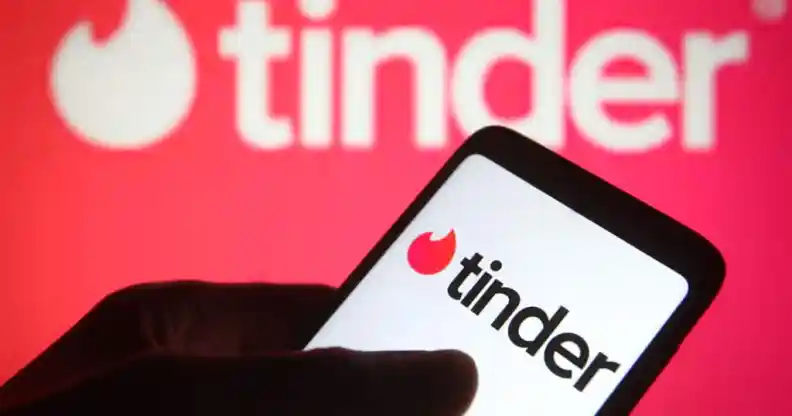Tinder furiously denies discriminating against gay and lesbian users

Tinder revealed that LGBTQIA+ members are now the fastest growing group on its app, and the number of members aged 18 to 25 that identify as LGBTQIA+ have more than doubled in the last two years. (Getty)
Tinder has denied claims it is overcharging young gay and lesbian users for its premium service.
Since-retracted claims by Which? alleged that Tinder was charging young gay and lesbian users in the UK as much as 37 per cent more for its premium service Tinder Plus compared to straight users of the same age.
If true, this would amount to a breach of equality law.
Tinder has resolutely denied any wrongdoing and called the Which? investigation “deeply flawed”, explaining that it offers discounts based on age – something Which? said in an update it was unaware of when it made its claims.
“It is categorically untrue that our pricing structure discriminates in any way by sexual orientation,” a Tinder spokesperson said.
“Any reporting or inference that we do this is patently false and outrageous. The mystery shopping activity of less than 200 people by Which? is deeply flawed and the conclusions cannot be relied upon due to several factors.”
Which? said it asked almost 200 mystery shoppers to create Tinder profiles.
When subscribing to Tinder Plus, which allows swipe-happy users to get unlimited likes and undo accidental selections, the shoppers reportedly encountered a patchwork of prices.
Which? originally said that young gay and lesbian users aged between 18 to 29 were paying £60.15 on average for Tinder Plus – 37 per cent more than straight users in the same age bracket.
However, upon learning of Tinder’s aged-based discounts, Which? updated its story with: “This new information leaves us with no evidence that sexual orientation impacts pricing for young Tinder users. We have therefore removed reference to it from this piece.”
Tinder explained that it offers discounts to users aged 28 and under, and that by using an 18-29 age grouping, Which?’s research was flawed.
“Twenty-nine-year-olds do not receive discounted pricing options, therefore every 29 year old would have seen a higher price point,” it said. “By including 29-year-olds in that group, it completely invalidates the credibility of this report.”
The ICO previously said it would assess the Which? report on Tinder’s pricing.
A ICO spokesperson said: “Organisations must use personal data lawfully, fairly and transparently. That means organisations must only use people’s data in ways they would reasonably expect, and be clear with people about why they need their personal data and what they will do with it.
“Which? has made us aware of this matter and we will assess the information provided.”
An EHRC spokesperson said earlier: “As Britain’s equality regulator it is our job to protect, uphold and enforce equality laws. We take reports of discrimination very seriously.
“This report of potential discrimination by Tinder is concerning. We will consider these findings by Which? and respond in due course.”
Tinder added: Despite Which?’s egregious reporting, we welcome the opportunity to speak with regulators and NGOs to clarify any concerns they may have. Sloppy, flawed or negligent reporting that is defamatory is not acceptable, and we will hold Which? accountable.”
Which? also reported that older users (regardless of sexual orientation) were charged more than younger users, with those aged 30-49 paying 48 per cent more, and over 50s paying 46 per cent more.
Updated following further clarification from Which?.

